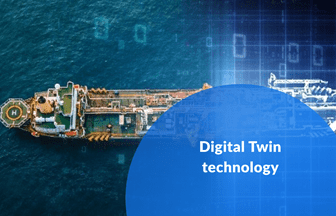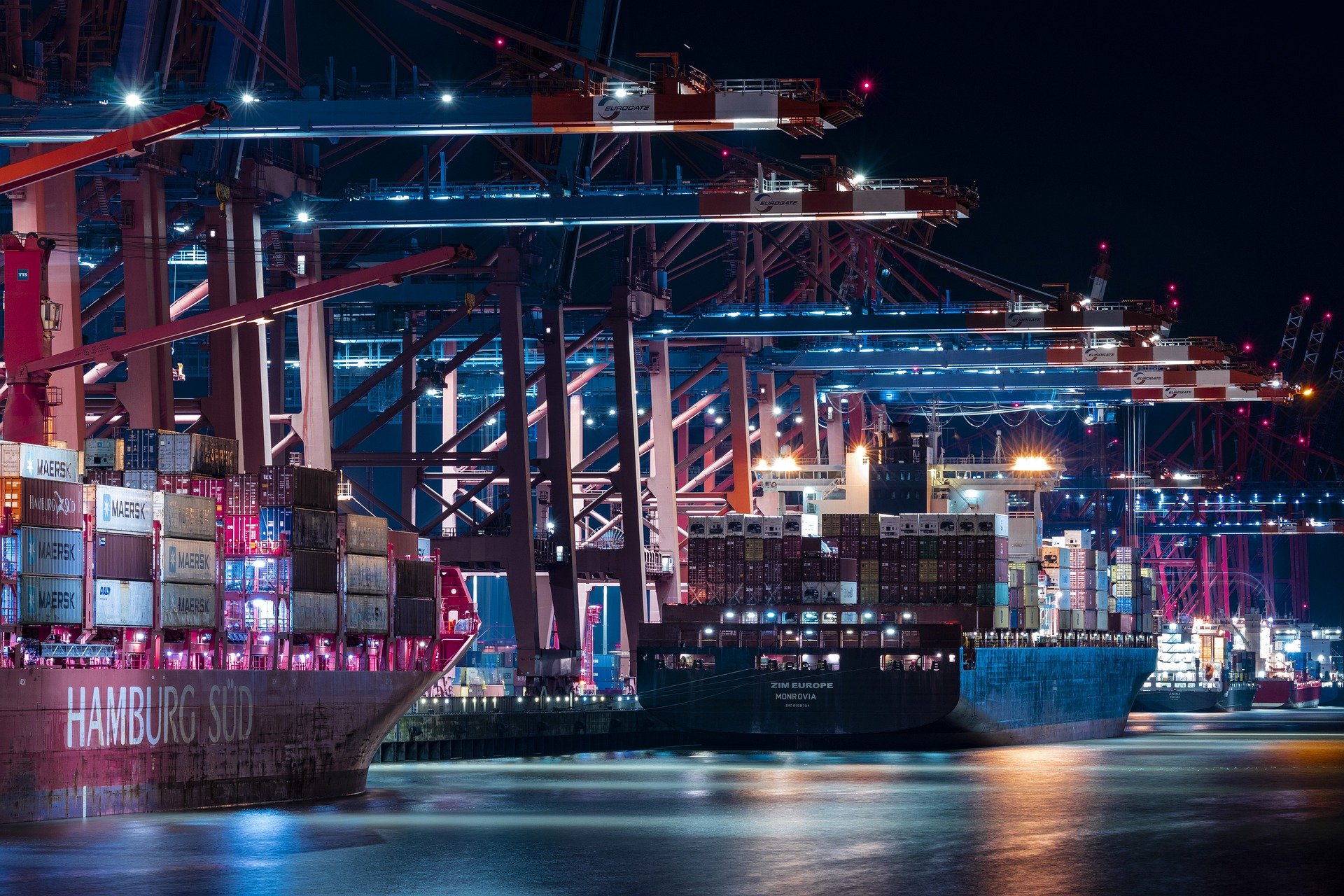This article was written by Alexey Kutsenko, CMO at DDI Development. Scroll to the bottom of this article to find out more about Alexey.
Keeping abreast of various technical developments may be tough, especially because new technologies appear every day. Companies need to stay informed about tech trends to be successful. In this article, we will list 10 logistics technology trends to keep an eye on in 2022.
Key technology trends transforming logistics
Transportation, the internet of things (IoT), cybersecurity, and supply chain management advancements may all help you stay ahead of the competition. Because customers expect businesses to use the most recent technology, it is crucial to enhance the expertise in new technology to implement it into your business.
Cloud-based systems
Over the past years, cloud-based technology has become an essential part of effective supply chain management. This technology is of high importance because it allows businesses to optimise many logistics-related processes. With the help of cloud-based computing, a company can streamline things such as product fabrication, packaging, and order shipment. Moreover, if you are using cloud systems, you can be sure that the company data is protected from fraud.
Self-driving vehicles and drones
Thanks to the abilities of Artificial Intelligence, the vehicle industry is experiencing a revolution. Numerous successful test drives show that self-driving vehicles can operate without physical workers. This opens up opportunities for cheaper, faster, and safer transportation. Businesses utilise drones to solve logistically complicated problems because drones are more mobile than humans. Drones can deliver goods, transport resources and access faraway places. When physical workers can be replaced with drones, it lowers production costs and increases efficiency.
 Internet of Things
Internet of Things
As the world’s consumption of goods and services accelerates, it becomes difficult to control the processes related to manufacturing and retail. IoT is going to be the top demanded technology in the next 3 years as it helps businesses to track different factors related to a product’s state such as shelf life, storage conditions, and shipment status. The ability to collect real-time data will help to reduce weaknesses of customer service, allowing businesses to enhance their product specialisation strategy.
Many businesses turn to ISO Standards to optimise and streamline processes and stay ahead of the competition. Implementing management systems increases efficiency, improves the quality and consistency of service, and minimises environmental impact. These International Standards support businesses to manage risks, save costs and deliver on time all the time.
Blockchain
Since the Blockchain is built using decentralisation principles, it can allow for more transparency in the transportation industry. In this way, consumers will be able to be informed about the delivery status of their order. In addition, blockchain can be cost-saving as it reduces the need for manual paperwork. It can bring transparency into audits, protecting the customers from fraud. Finally, blockchain smart contracts help companies optimise the procurement process and eliminate human errors.
Transportation Management Systems (TMS)
The word TMS gets mentioned very often, especially among logistics enterprises because everyone is looking for a centralised system to manage distant activities. For instance, TMS is of great use when it comes to facilitating the means of delivery and enhancing route automation. The use of TMS allows you to track the drivers in real time, lower shipment costs, improve employee integrity and increase customer satisfaction.
When it comes to logistics management, businesses prefer to use a TMS because it is a great way to plan and track numerous processes all in one place. In most cases, TMS is being utilised to optimise the delivery process and build optimal routes. With this technology, businesses can access their workers at any time, reducing delivery costs, creating a transparent workflow, and ensuring a better quality of customer service.
 Digital Twin technology
Digital Twin technology
The leading companies in business process services rely mainly on Digital Twin technology, which is a virtual clone of a real-world situation. Digital twins may be altered and updated to uncover efficient production methods that can subsequently be adopted in real life. Companies can improve supply chain productivity to unprecedented levels by integrating AI with digital twins, giving them an edge over their competitors. Digital twin technology is a hot topic since it allows businesses to make better use of their data in order to remain flexible and adaptable.
Last-mile delivery technology
The last-mile delivery is a service strategy that allows customers to get their orders delivered from the warehouse straight to their door. The last-mile delivery trend is gaining more popularity, and very soon it will become the new norm. Companies that want to attract more customers should keep an eye on providing free and fast delivery in 2022. Given that the pandemic boosted online shopping, investing in innovative technology for faster delivery is the right thing to do this year.
Cybersecurity
Most companies these days distribute their services across different cloud management systems which makes them more susceptible to cyber-attacks. Failure to protect technology leads to monetary losses, whereas cybersecurity mesh architecture (CSMA) enables multi-dimensional management of all business services in one place. Gartner claims that using CSMA can prevent 90% of security intrusions.
 Metaverse
Metaverse
Metaverse has become the latest buzzword in the tech industry. A combination of augmented reality, virtual reality, 3D, and other mediums results in a virtual world that can replace most of everyday operations. For example, businesses could replace physical offices with virtual work platforms like Virbela. Travelling to other countries for business purposes can be easily substituted with a meeting in the metaverse. Metaverse will change the shopping industry because people can shop in Metaverse using cryptocurrency, which means that a vast amount of businesses can shift their focus to virtual products.
Artificial Intelligence (AI) and Robotic Process Automation (RPA)
AI-powered devices will be very useful for all businesses that utilise transportation and warehousing. Given the fact that the Covid-19 pandemic has led to social distancing and labour cuts, using AI will ensure a fast adoption to the new conditions. By using advanced technology, companies can manage social distance in the workplace, be it IoT or independent robots that supervise the employees.
Robotic process automation (RPA) will play a major role in shifting supply chains from manual work to automation. Replacing humans with robots can economise a lot of assets while improving efficiency. Although some people will be out of work, RPA will lead to an increased demand for software engineers and robot technicians.
Predictions for technology trends in logistics in 2022 and beyond
There are ever-changing trends and advancements in supply chain management that will shape the future of the business industry. They are, nevertheless, all linked by a common thread: technology. Artificial Intelligence, Blockchain, and the Internet of Things will eventually become the backbone of logistics-related enterprises.
